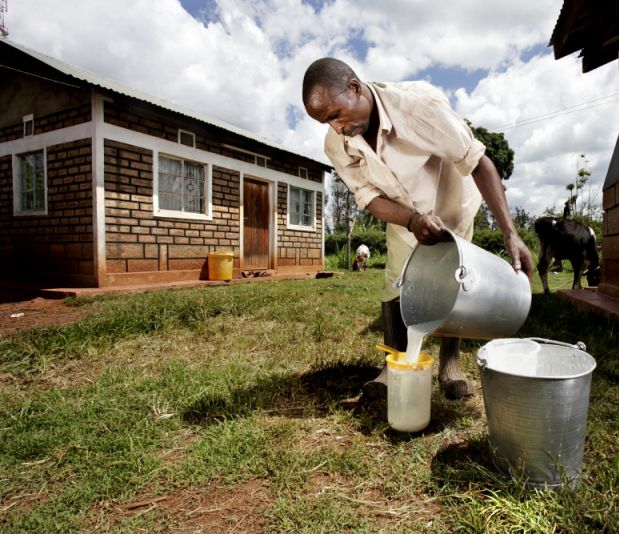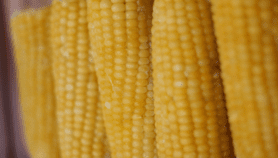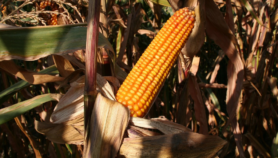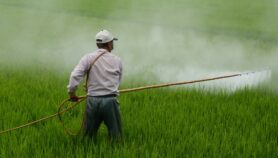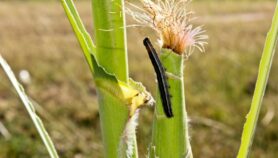By: Sam Otieno
Send to a friend
The details you provide on this page will not be used to send unsolicited email, and will not be sold to a 3rd party. See privacy policy.
[NAIROBI] An initiative has been launched to promote the adoption of technologies for assisting farmers in Sub-Saharan Africa improve cereal, horticulture and livestock productivity.
The Integrated Biological Control Applied Research Program (IBCARP) of the Kenya-based International Centre of Insect Physiology and Ecology (icipe) will support the adoption of the centre’s technologies to benefit an estimated 350,000 farmers and pastoralists in Kenya, Ethiopia and Tanzania, according to Segenet Kelemu, director-general of icipe.
“Insect pests and weeds (Striga) cause up to 100 per cent yield losses and financial losses of between US$7 billion and US$11 billion annually [in Sub-Saharan Africa].”
Christopher Prideaux, International Centre of Insect Physiology and Ecology (icipe)
Kelemu says the 15 million euro (US$16.8 million) initiative will be implemented through projects focusing on the centre’s climate-resilient push-pull technology for the control of weeds and pests, a technology that is tied around the animal's neck to repel tsetse flies, and a research for controlling vectors of camel diseases.
The four-year initiative, funded by about US$13.4 million grant from the European Union, with additional funding from icipe and other partners, was inaugurated at a meeting attended by over 40 technical experts from across the globe last month (August 26).
The icipe intends to work with governments and the private sector in the three countries, and plans to scale up the project in other African countries.
Christopher Prideaux, research and partnership director at icipe tells, SciDev.Net that the adoption of the technologies being promoted through IBCARP could reduce yield losses and the huge expenditure incurred by farmers buying pesticides in trying to deal with the devastating pests.
They also aim at mitigating the health and environmental risks associated with the use and misuse of such chemicals.
“Productivity of cereals, horticulture and livestock in the Sub-Saharan [Africa] region is low due to insect pests and parasitic weeds,” says Prideaux. “Insect pests and weeds (Striga) cause up to 100 per cent yield losses and financial losses of between US$7 billion and US$11 billion annually, affecting the livelihoods of more than 250 million people.”
Soils in many parts of the African continent are generally poor, with over 65 per cent of arable land being degraded resulting in food insecurity and poor livelihoods, Prideaux adds. Thus, addressing the constraints is necessary for achieving food security, economic growth and poverty alleviation in Sub-Saharan Africa.
Charles Wachira, director of the Kenya Agricultural and Livestock Research Organisation centre in Kitale in the western region of the country, says: “I strongly welcome the initiative because it will definitely benefit the farmers of this region who continue to suffer due to infestation of pests and weeds on their farms.”Wachira adds that all stakeholders should be engaged, noting that farmers should be adequately trained in how they can use the technologies to increase food security and incomes.
This article has been produced by SciDev.Net's Sub-Saharan Africa desk.


